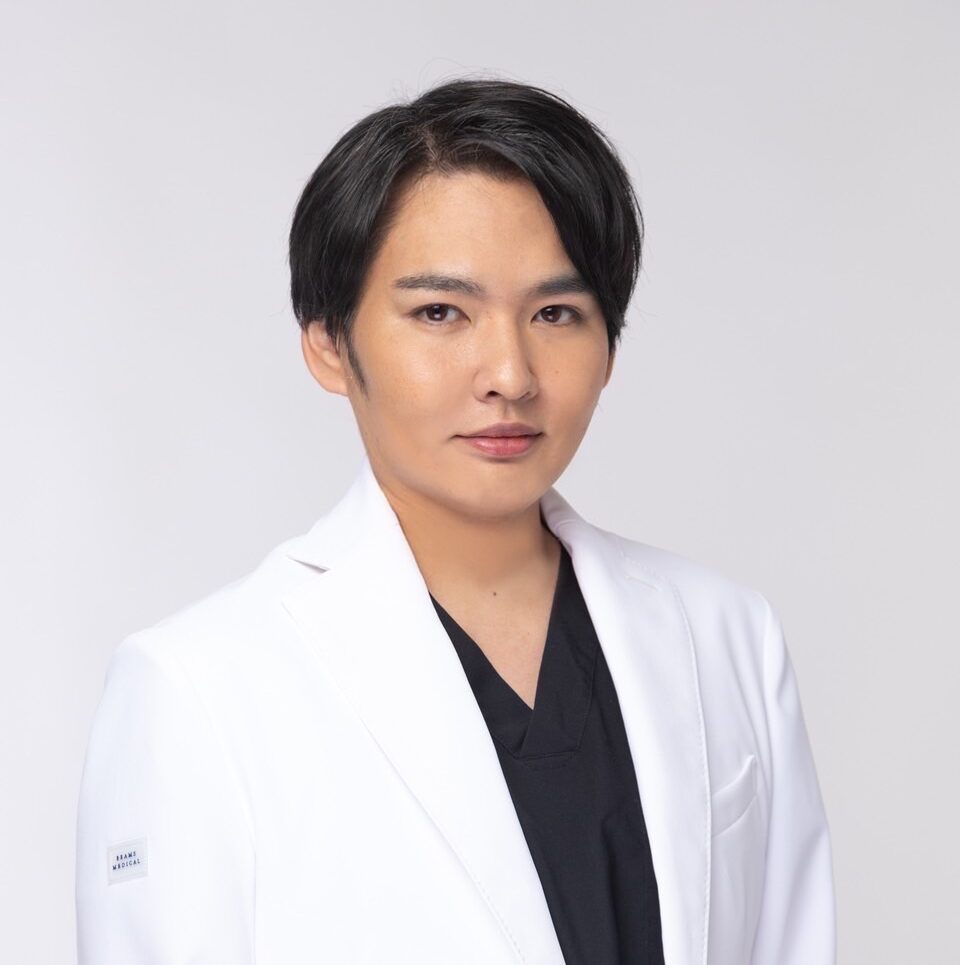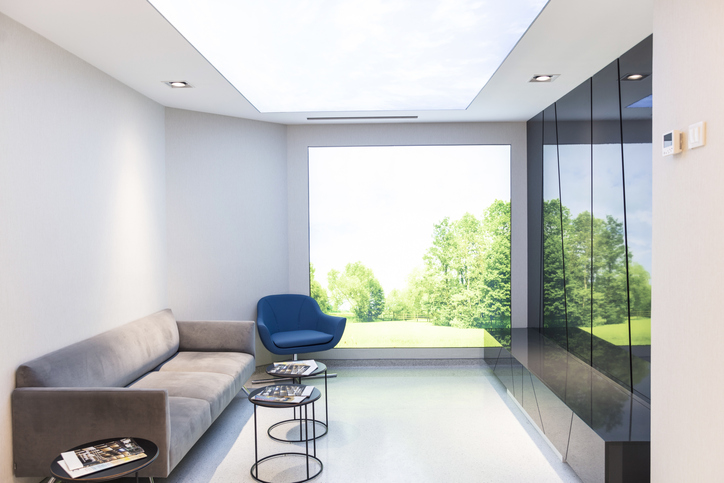Botox injections are one of the cosmetic treatments chosen by many people for the improvement of expression wrinkles and the effect of a smaller face. However, some people feel "drowsy" after the procedure, and many anxiously search for the answer to this question. Is drowsiness a side effect or a natural body reaction?
In addition, whether the effects vary depending on the treatment area, here we will carefully explain from a professional perspective the causes of drowsiness, how to identify it, how to deal with it correctly, and what to look out for in your daily life.

Graduated from the Faculty of Medicine, National Kumamoto University. After serving as the director of major beauty clinics in Japan, etc., he opened Aladdin Aesthetic Clinic in 2023. He is a professional in aesthetic medicine with a doctorate in anti-aging research and many years of experience. With the motto of "Toward the realization of cosmetic medicine without lies," he aims to be the "Only One" together with his patients.
- Why do I feel sleepy after Botox? What are the possible medical causes?
- Is drowsiness a side effect? Or is it a normal reaction? Points of Discernment
- Is there a difference in sleepiness after shoulder or forehead treatment? Differences in impact and experience in different parts of the body
- Are they actually related? Pay attention to minor physical changes other than drowsiness.
- What are some proactive measures for people who are anxious about drowsiness?
- summary
Why do I feel sleepy after Botox? What are the possible medical causes?
You may have experienced feeling "strangely sleepy" or "lightheaded" after receiving Botox injections. Botox is used for a variety of purposes, such as improving wrinkles and gills and relieving stiff shoulders, but many people are confused and anxious about the physical changes that occur afterward.
It is particularly difficult to determine whether drowsiness is a side effect or a natural reaction. In this chapter, the relationship between Botox and drowsiness will be explained in an easy-to-understand manner from a medical perspective.
Muscle relaxation and parasympathetic nervous system
Botox (botulinum toxin) temporarily blocks muscle movement by inhibiting the release of the neurotransmitter acetylcholine. This action reduces the appearance of facial wrinkles and shoulder tension, but at the same time, the body undergoes a "muscle loosening" change.
When muscles are relaxed, the parasympathetic nervous system, which controls the "relaxation mode" of the autonomic nervous system, becomes dominant. This is the same response as when you take a deep breath or relax in a bath. Your heart rate becomes calm, your blood pressure drops, and your body is inclined to "rest".
The result can be a natural feeling of drowsiness. This change is especially significant for those who have had chronic muscle tension, and the loosening of the body after the injection brings on sleepiness along with a deep sense of relaxation.
Relaxed state can cause drowsiness.
When the human body is released from extreme tension, previously suppressed feelings of fatigue and drowsiness may surface. This is related not only to physical but also psychological effects.
For example, if a person who is prone to tension between the eyebrows on a daily basis, Botox treatment on the forehead will release unconscious tension, and the tension in the mind will be eased accordingly. As a result, the brain is guided into a state of parasympathetic nervous system dominance, and the patient feels a gentle sleepiness, as if his or her consciousness has suddenly turned inward.
Such drowsiness is particularly likely to occur when the treatment is added to a state of fatigue or stress, and may be a "physical and mental recovery reaction" rather than a mere side effect.
Natural reaction as a temporary physical change
It is important to clarify here that "drowsiness does not mean that one should immediately suspect a side effect or abnormality. In fact, the major known side effects of Botox include swelling at the injection site, internal bleeding, mild headache and fatigue, and "drowsiness" is not considered a frequent medical symptom.
However, this does not mean that it does not exist. It is quite possible to become sleepy spontaneously, depending on the function of the autonomic nervous system, the physical condition of the day, the area being treated, and the intensity of the tension.
In most cases, this drowsiness is a mild reaction that will spontaneously subside within a few hours from the day of the procedure to the next day, and is not a cause for concern. On the other hand, if it is accompanied by a strong sense of fatigue, dizziness, or nausea, you should keep in mind the "signs that you need to consult a doctor," which will be explained in detail in the next chapter.
Is drowsiness a side effect? Or is it a normal reaction? Points of Discernment
In the previous chapter, we introduced the possibility that Botox injections may cause drowsiness to appear as muscle tension is relieved and the parasympathetic nervous system becomes dominant. In fact, a certain number of people feel "somewhat sluggish" or "a little sleepy" after the procedure.
However, it is difficult for patients to determine whether these reactions are "side effects" or "normal reactions. In this chapter, we will explain the differences from a medical point of view, as well as the guidelines and criteria for consultation.
Where is the criteria for being called a side effect?
In the medical field, "side effects" are undesirable reactions that appear in the body that are different from the purpose of the treatment. With regard to Botox, official organizations such as the Ministry of Health, Labor and Welfare and the FDA have reported swelling at the injection site, internal bleeding, headache, fatigue, and some muscle weakness as major side effects.
On the other hand, "drowsiness" is not included in this list of typical side effects. However, that does not mean "drowsiness never occurs"; in fact, it is not classified as a common side effect because it is reported infrequently and is usually mild and temporary.
In fact, some people who have received Botox injections have reported feeling "a little sleepy" or "tired. This is not considered a side effect, but rather a "normal physiological response" as the muscles relax and the parasympathetic nervous system becomes dominant, and the body naturally moves into a state of relaxation.
Cases where leaving it alone is not a problem
Even if you feel drowsiness, as long as it resolves in a short time and does not interfere with your daily life, there is basically no problem. Especially on the day of treatment and the day after, the autonomic nervous system is sensitive, making it easy to feel temporarily drowsy and tired.
In these cases, it is most effective to rest the body in a quiet environment instead of trying to force activity. Simply drinking plenty of fluids and lying down slowly will often alleviate symptoms within a few hours.
It is also possible that the body is seeking "rest" by releasing tension and stress from the procedure itself. These reactions are not side effects, but part of the body's natural recovery process.
What are the signs that I should consult a physician?
Nevertheless, if certain symptoms occur, along with drowsiness, it should not be taken lightly and consultation with a physician is necessary. Botox is basically a safe treatment, but in very rare cases, serious side effects may occur due to diffusion of the toxin or hypersensitivity reactions to the nervous system.
Seek medical attention immediately, especially if you experience any of the following symptoms
- Dizziness or lightheadedness, unable to stand
- Nausea and vomiting that won't stop.
- Abnormal muscle weakness or numbness
- Shallow breathing, chest tightness
- Difficulty swallowing (dysphagia)
- Difficulty in speaking, slurring of speech (dysarthria)
Although these are very rare, it is possible that the effects of botulinum toxin may have spread unintentionally, so it is important not to leave them untreated and to seek professional medical advice.
Is there a difference in sleepiness after shoulder or forehead treatment? Differences in impact and experience in different parts of the body
In the previous chapter, we explained that drowsiness after Botox is primarily a natural physiological response due to muscle relaxation and parasympathetic activation. So, does the drowsiness differ depending on the "area" where the treatment is performed?
For example, the forehead and shoulders. Both are commonly chosen sites for Botox injections, but subtle differences exist in the physical changes felt after the procedure. Here, we will explain in detail how each area causes drowsiness and its characteristics based on the differences in the muscles and nerves that are affected.
| Treatment area | Main target muscles | Nerve Properties | Frequently observed experience |
|---|---|---|---|
| forehead | Facial muscles (frontalis muscle, wrinkle brow muscle) | Sensory nerves dense and sensitive | Dull pain, heaviness, facial discomfort |
| shoulder | trapezius muscle | Easily influenced by the autonomic nervous system | Weakness, deep relaxation, drowsiness |
Differences in the muscles acted upon by the facial and trapezius muscles
The muscles that Botox acts on vary greatly depending on the area to be treated. Injections into the forehead mainly target the facial muscles such as the frontalis muscle and the wrinkled brow muscle. These are located in the shallow layer and are characterized by very delicate movements and abundant sensory nerve innervation, which may cause mild discomfort, dull pain, or heaviness after the procedure.
On the other hand, the shoulder treatment targets a large muscle called the trapezius muscle. This area is often under constant tension in daily life, and blood flow to it is easily impeded.
It is this difference in muscle type and nerve innervation that also affects the "feeling of sleepiness.
Shoulder Botox and Deep Relaxation
In recent years, Botox injections into the trapezius muscle have gained attention in the beauty industry under the name TrapTox. In addition to reducing stiffness in the shoulders, this treatment is also used to make the neck look more refreshed, improve rolled shoulders, and assist with a smaller face, and is particularly popular among those suffering from chronic tension caused by computer work and other factors.
TrapTox is characterized by deep muscle weakness, which facilitates deep breathing after the treatment, and the body naturally switches to parasympathetic dominance. As a result, it is not uncommon to feel sleepy, as if you were slumbering.
Such sleepiness is not abnormal, but rather a "normal healing sign" as a reaction to the release of muscular overstrain.
Possible nerve irritation from head treatment
On the other hand, Botox injections into the forehead are often performed to reduce the appearance of forehead wrinkles, and the effect is limited to the facial muscles. The face is densely lined with sensory nerves and is a very sensitive area, so many people tend to feel pressure, discomfort, or light-headedness rather than drowsiness.
There are rare cases of drowsiness after the procedure, but the probability of drowsiness is low because the major effects on the autonomic nervous system due to deep muscle relaxation, such as shoulder botox, are relatively small.
Are they actually related? Pay attention to minor physical changes other than drowsiness.
In the previous chapter, we discussed how different muscles and nerves in different areas of the body tend to produce the drowsiness felt after Botox treatment. It has been found that in areas such as the shoulders, where the whole body relaxes, the relaxing effect is particularly strong, and the parasympathetic nervous system is more likely to feel drowsy.
However, the body's reaction is not limited to sleepiness. Some people complain of temporary fatigue, discomfort, or vague changes in physical condition such as "I feel kind of heavy" after the treatment. These are not side effects, but rather natural reactions that are often seen as the body tries to adapt to changes in its environment.
| Types of physical changes | State Trends | Recommended Response |
|---|---|---|
| Mild drowsiness and fatigue | Tendency to improve spontaneously by the next day | Hydration, rest, and observation are OK. |
| Mild muscle pain or discomfort | Localized around the injection site | Take it easy, life tends to improve in a couple of days. |
| Strong and persistent malaise | Lasts more than 3 days or tends to worsen | Consultation with a health care provider is advisable. |
| Nausea, dizziness, etc. | With other neurological symptoms | Consider immediate medical attention |
Here, we will carefully explain from a professional perspective the types of such minor physical changes, how to recognize them, and when to consult a physician.
Can fatigue, lethargy, and discomfort also occur?
Botox acts on the neuromuscular junction to relieve muscle tension and produce a variety of cosmetic and medical effects. However, it is a "new state" for the body and can sometimes cause mild confusion.
Typical of these are nonspecific symptoms such as fatigue and lethargy. Muscles may feel a little heavier or slightly light-headed immediately after the procedure due to loosening of the muscles and changes in the pattern of nerve transmission. Some patients may also experience a mild muscle ache or other discomfort at the injection site.
These reactions are part of the "readjustment" of the neuromuscular system after treatment, and most will subside spontaneously within a day or two.
Line that should be looked at without anxiety.
In most cases, mild drowsiness and fatigue are resolved by the next day of treatment and do not interfere with daily life. In fact, the attached document from the Ministry of Health, Labor and Welfare and clinical data from overseas also state that these symptoms are "transient," "mild," and "can be observed over time.
If the following conditions are present, there is basically no problem with resting at home and watching the patient.
- Drowsiness and lethargy, but can go about daily activities
- Mild muscle soreness at the injection site, but only slightly bothersome when touched or moved
- Somewhat "heavy" feeling, but tends to lessen with time
These fluctuations in physical condition can be understood as "signs" that Botox has begun to work. Temporary discomfort is not unnatural, as the body is trying to adjust to the new balance of tension.
Action plan if not improved within a few days
On the other hand, if these minor physical changes do not clearly improve after a few days or are getting worse day by day, consultation with a physician is necessary. The following cases may be due to the excessive effects of Botox or may involve other physical factors.
- Fatigue lasts more than 3 days and interferes with daily life
- Symptoms like muscle pain spread from the injection site to the surrounding area.
- Headache, nausea, dizziness, etc. become more intense
- Prolonged mood swings and difficulty concentrating
If any of these symptoms are observed, it is advisable to contact the physician responsible for the procedure and to return for a follow-up visit if necessary.
What are some proactive measures for people who are anxious about drowsiness?
So far, we have discussed in detail the drowsiness and mild physical changes that appear after Botox treatment, taking into account the medical background and the differences in each area. In most cases, they are temporary and subside spontaneously, but some people may still feel anxious about what to do if they become sleepy after the procedure.
For example, if you have a full schedule of work or household chores on the day of the treatment, or if you are anxious about your physical condition, you may feel more burdened by such drowsiness and fatigue.
Therefore, here we will provide comprehensive information on "measures to prevent drowsiness" that can be taken before the procedure, how to make a plan, points to be communicated at the counseling, and even specific measures to manage your physical condition. Let's prepare together to minimize post-treatment discomfort symptoms and face Botox with peace of mind.
Coordinate schedules and plan well in advance
The Botox procedure itself is a simple procedure that takes only a short time to complete, but each person's physical condition changes afterward. In particular, first-time patients and those with sensitive autonomic nerves tend to feel drowsiness, fatigue, and weakness after the procedure.
Therefore, it is advisable to keep your schedule as relaxed as possible, avoiding important appointments, long trips out of the house, driving, etc. on the day of the procedure.
If possible, it is a good idea to plan your day so that you can have your treatment in the morning to before noon and spend the afternoon quietly at home. It is also a good idea to have a schedule that allows you to go to bed early for the next day.
What to tell them during counseling
It is very important to discuss with your doctor in advance not only the area to be treated and the design of the Botox procedure, but also any concerns you may have about your physical condition.
Do not hesitate to express your concern about drowsiness during counseling, especially if you are
- Have experienced fatigue from injections or drugs in the past
- Chronic autonomic nervous system disturbances and low blood pressure.
- Difficulty in finding time to rest after treatment due to work or household responsibilities
By obtaining this information, it is easier for the physician to take action, such as giving consideration to post-procedure explanations and precautions, and taking into account the time of day for the procedure. Since the procedure is a joint effort with the doctor, sharing your concerns is an important part of the preparation process.
Comfortable post-treatment with condition management.
The feeling of drowsiness is greatly influenced not only by one's physical constitution, but also by one's physical condition before and after the treatment. In particular, the following factors tend to be directly related to the functioning of the autonomic nervous system and overall sensitivity, and it is recommended that they be prepared in advance.
- Sleep: 7-8 hours of solid sleep the day before the procedure
- Diet: Do not skip breakfast or lunch, and keep blood glucose levels stable during the procedure.
- Hydration: dehydration tends to intensify fatigue, so be sure to drink enough water.
- Caffeine intake: Excessive intake can cause a temporary feeling of alertness, but can also induce strong sleepiness as a reaction
In addition, if a patient is in an unusual physical condition, such as during menstruation or with a cold, there is a risk of contributing to discomfort symptoms other than drowsiness, so good judgment is required not to overdo it on the day of the treatment.
summary
Drowsiness after Botox injections is often due to a natural reaction to nerves and muscles and is mostly temporary and not a cause for concern. However, if dizziness, nausea, or other abnormalities accompany the injection, a doctor's consultation is required.
Since the feeling of drowsiness may vary depending on the treatment site and the influence of lifestyle habits, preparation in advance is a reassuring factor. With proper understanding and measures, you will be able to safely and comfortably incorporate cosmetic medical treatment.
At Aladdin Aesthetic Clinic, based on our many years of experience in cosmetic medicine and cosmetic dermatology and the knowledge of our doctoral degree, we provide counseling that aims to be "only one", offering the best treatment for each person we meet. We offer only the necessary treatments without any unnecessary information or suggestions.
Feel free to use our official LINE account for 24-hour counseling and reservations. Please feel free to contact us for free counseling for the first time or if you have any concerns.






